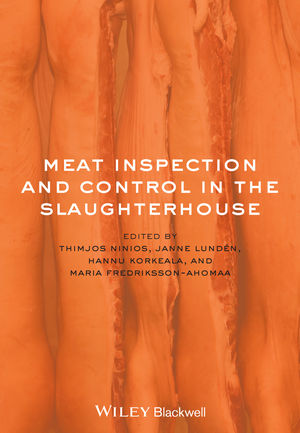A Conversation With Joe Luter III Chairman and Chief Executive Officer
Under his leadership the company has grown into the world’s largest hog producer and pork processor. Smithfield gained 14 percent of the U.S. marketshare thanks to its recent acquisition on the beef side. Luter is prospecting on the European front these days. Smithfield’s international business currently includes Animex, Poland (largest meat and poultry processing operation in Poland and producer of Krakus ham); Jean Caby Group, France (branded and private label processed meats for retail and foodservice); two joint ventures with Morson, Mexico (vertically integrated pork producer and processor) and AFG China (produces, sells, and distributes processed meats to retail and foodservice); and Campofrio, Spain (processed pork products), the most recent acquisition of 22 percent ownership.
Q: Do you still foresee the European business ultimately generating profit at the same level as the U.S. business?
Luter III:I do. I continue to be excited about Eastern Europe particularly Romania, which is the Iowa of Europe. Romania is a net importer of meat. We have bought a very large plant there and are putting in farms as quickly as we can get permits.
Q: Why Eastern Europe?
Luter III: We have seen tremendous opportunity there. By comparison it would be like Iowa importing meat from California or from New York to Iowa, which would make no sense. This is the situation we see in Eastern Europe. When the Iron Curtain went down in 1945, the industry ended up in the wrong part of Europe. We are not burdened with plants in what we believe is the wrong part of Europe. We are expanding in the part of Europe where it should have been in the first place, if there had not been an artificial barrier.
Q: Do you anticipate political problems in Romania like the ones encountered in Poland?
Luter III: Anytime you represent change, there is some opposition. We see fewer problems in Romania because there is no developed hog industry as there was in Poland. You don’t have that constituency in Romania that is frightened of efficiencies and our lower costs. You still have bureaucracy to contend with and things move a bit slower in that part of the world than in more developed parts of the world. We are getting there and we are optimistic that that will be a substantial part of our profitability. Will it enhance our profitability by a large amount in the next year or two? The answer is no, but the way we built Smithfield Foods is by not running the company quarter to quarter or even year to year. We take long-term positions that we know will work, such as the way we went into vertical integration some 15 years ago. It did not hit the bottom line for four or five years; but you’ve seen what it has done for us long term, and we see the same opportunities in Easter Europe today. It’s going to contribute a tremendous amount to our profitability a few years out, even though there will be slight losses in the meantime. That’s the way we run the company and that is why we have been as successful as we have.
Q: What does 2006 look like for Smithfield’s export business?
Luter III: I do expect the export side to be strong. I don’t see the weakness out there next year that some people see. We expect to put more products into Eastern Europe than we did last year. We expect improvements in Japan and Australia, despite the current problems right now. We have seen a dramatic increase, and expect that to continue. It is a slow trend, and there will be bumps in the road. The big question mark is China. There will be a huge demand for meat as literally tens of millions of people move into the cities in China. In the foreseeable future, it seems China is pretty well tapped out concerning its capability of producing more meat because there is just not enough feed grain available in China. What will happen is uncertain, but it appears the trend will be positive in China in the next five years as trade liberalization — slow as it may be — continues to improve.

